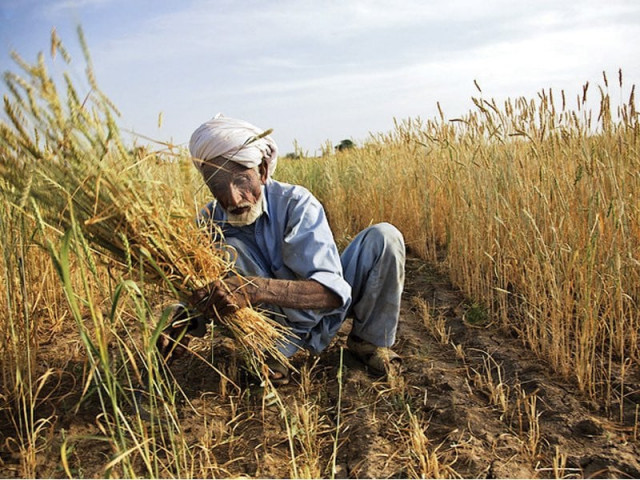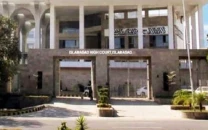Maryam steps in to allay wheat farmers’ worries
PKI demands timely and maximum purchase of crop from growers

Amid Punjab’s reluctance to commit to any wheat procurement target, farmers in the province face an uncertain situation about their produce but in an effort to mitigate their concerns, Chief Minister Maryam Nawaz assured them that her government was “working on various options” to ensure that they were not affected by “compensating through other means”.
The Pakistan Kissan Ittehad (PKI) demanded that the Punjab government should ensure timely and maximum purchase of wheat from the farmers.
Moreover, the provincial food department on Saturday started one of the most uncertain, difficult and politically risky wheat procurement campaigns, asking farmers to start applying for gunny bags through the online Bardana application.
In the past, the gunny bag process started after the government announced how much it was going to buy from the farmers -- considered the most crucial factor in stabilising the wheat market.
“I am trying to safeguard interest of small farmer however by law I can’t intervene in private transactions or transactions between two private entities,” Maryam wrote on her official social media platform X handle.
“Wheat prices have dropped internationally. We are working on various options to ensure the farmers don’t get the hit by compensating through other means. We are giving 150,000 per crop (two crops per year) via [Kissan Card] for seed, pesticides & fertiliser. This will cover [each farmer’s] entire cost. We are also helping them with mechanisation by giving them huge subsidies on inputs/machinery,” she added.
This year’s projections safely surpass 28 million tonnes, and some estimates even point towards a record 29 million tonnes of wheat harvest. The bumper wheat output had put the farmers in a difficult position and being exploited by financially strong market forces.
In a statement, PKI Provincial Coordinator Amjad Ali said the farmers were frustrated as there was nobody to buy wheat in the market. He added that it had also become very difficult to save wheat from the recent rainy spells.
The PKI provincial coordinator further said the prices of inputs had increased manifold. He criticised the caretaker government for unnecessarily importing wheat when the local crop was about to emerge in the markets.
He appealed to the provincial government to ensure the purchase of maximum wheat from the farmers so that they could be able to focus on the next crop -- cotton.
The issue has become all the more complicated after the Economic Coordination Committee (ECC) of the cabinet in its meetings held on April 4 and April 5 failed to approve a clear-cut cash credit limit to the provinces and other stakeholders for wheat procurement.
The ECC approved about Rs275 billion cash credit limit for wheat operations of smaller stakeholders to ensure the procurement of 2.45 million tonnes in the public sector.
This, however, did not include the largest producer and stakeholder, Punjab, which last year purchased 4.5 million tonnes alone -- almost more than double the procurement by all other participants.
This time around, the province neither committed to any procurement target nor sought a cash credit limit.
Punjab declined to seek a credit limit, stressing that it would intervene when it found reasonable evidence about the farmers being fleeced and come to their assistance for official stocks at the approved wheat support price.
The Punjab government informed the committee that it was closely monitoring the wheat situation in the province and initiated the procurement process.
It further informed the meeting that the provincial government would continue to intervene to make sure that the farmers were able to sell their produce at the support price level.
(With input from APP and our News Desk in Karachi)



















COMMENTS
Comments are moderated and generally will be posted if they are on-topic and not abusive.
For more information, please see our Comments FAQ